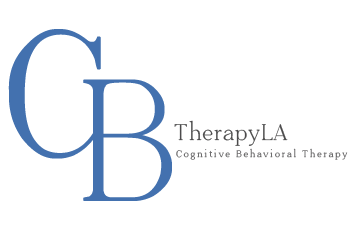Evidence-Based Treatment Modalities
What is Cognitive Behavioral Therapy?
Cognitive-behavioral therapy (CBT) is a form of psychotherapy that is strongly supported by research. It focuses on the relationship between thoughts, feelings, and behaviors. CBT is structured and skills-based, involving a collaborative approach between the therapist and the client. It places a strong emphasis on psychoeducation, teaching the client to become their own therapist. The treatment incorporates two evidence-based techniques: Exposure and Response Prevention (ERP) and Cognitive Therapy (CT). The cognitive component of treatment involves helping the client identify and modify distorted thinking and faulty beliefs that contribute to anxiety and distress.
Exposure and Response Prevention
Exposure and Response Prevention (ERP) is the behavioral component used to treat OCD and anxiety. It is considered the gold standard and an evidence-based treatment for Obsessive-Compulsive Disorder and other anxiety disorders. ERP equips the client with the tools needed to manage their obsessions and compulsions. Exposure therapy involves intentionally confronting situations that trigger the client’s obsessions, such as thoughts, images, objects, and situations, without engaging in any compulsions. Repeated exposure to the feared stimulus leads to habituation, allowing the client to become accustomed to the situation until the brain becomes less reactive to the stimuli. The response prevention aspect is the cornerstone of treatment, as it teaches the client how to alter their response to obsessional thoughts and emphasizes that compulsions are a choice. The treatment’s goal is to enhance the client’s ability to tolerate uncertainty and discomfort while also reducing the frequency of compulsions.
Acceptance and Commitment Therapy
Acceptance and Commitment Therapy (ACT) is an empirically-based treatment that utilizes acceptance and mindfulness strategies. It has been proven effective in treating various conditions, including depression, anxiety, social anxiety, OCD, and numerous other issues. ACT centers around six core processes: defusion, acceptance, being present in the moment, observing self, values, and taking committed action. The therapy aims to guide individuals towards living a meaningful life that aligns with their values, while also fostering a transformative relationship with their thoughts and feelings—placing particular emphasis on the core process of acceptance.
Habit Reversal Training
Habit Reversal Training (HRT) is an evidence-based treatment used to address repetitive behavior disorders, including tics, trichotillomania, nail biting, thumb sucking, and skin picking. The treatment comprises various components, including awareness training, competing response (CR) training, stimulus control interventions, relaxation training, and social support.
These issues are commonly treated in therapy but are not limited to:
| Anxiety | Panic Attacks/Panic Disorder |
| Behavioral Issues | Parent-Child Difficulties |
| Body-Focused Repetitive Behaviors | Parenting |
| Depression | Peer Relationships |
| Eating Disorders | Personal Growth |
| Emetophobia | Relationship Issues |
| Excessive Worry | School Issues |
| Excoriation (Skin Picking) | Self-Esteem |
| Family Conflict | Sleep or Insomnia |
| Generalized Anxiety Disorder | Social Anxiety Disorder |
| Grief | Specific Phobias |
| Health Anxiety | Stress Management |
| Life Transitions | Test Anxiety |
| Marital Issues | Trauma |
| Obsessive-Compulsive Disorder | Trichotillomania (Hair Pulling) |
